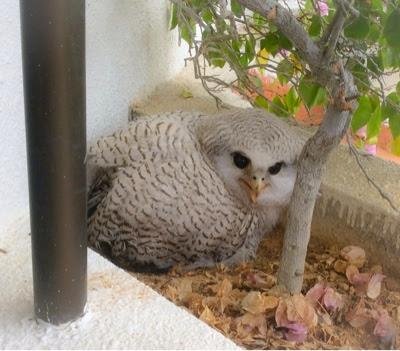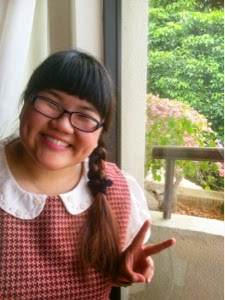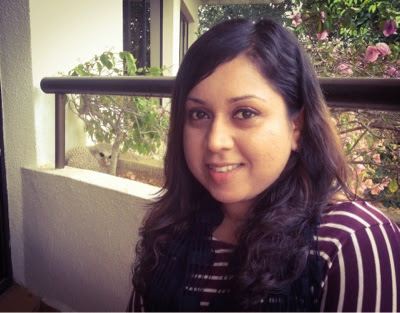a NST exclusive by Adrian Lai
KUALA LUMPUR: A PROMINENT Chinese community leader has admitted
that the existence of various school streams in the country has
impeded efforts to create a united nation.
Federation of Chinese Associations Malaysia (Hua Zong)
secretary-general Prof Datuk Dr Chin Yew Sin, however, said
despite the problem, the government should continue to find ways to
foster unity among young Malaysians without changing the status quo.
“Racial polarisation exists, but the right to operate Chinese
vernacular schools in Malaysia is enshrined in the Federal Constitution.
It is part of the social contract signed by our forefathers and
cannot be challenged,” he told the New Straits Times yesterday.
“If students in national and national-type schools do not interact
(with each other) at all, they will grow up living in different worlds
and this will create problems in the future.”
He was responding to Prime Minister Datuk Seri Najib Razak’s
speech at MCA’s Annual General Assembly on Sunday, in which Najib
assured the public that Chinese education would continue to be
safeguarded.
However, Najib said he hoped students in Chinese vernacular schools would learn and master Bahasa Malaysia.
“Bahasa Malaysia is not only the national language, but also
serves as the medium of communication for all ethnic groups in
Malaysia. It is a tool that can foster national unity,” said Chin.
He said although the legitimacy of Chinese vernacular schools was
guaranteed under the social contract, the inability of students from the
different types of schools to interact would cause disunity.
“Students in the different types of schools are moving in the same
direction, but on parallel lines. As the Malay adage goes, tak kenal maka tak cinta
(to know somebody is to love somebody). We must work around this
problem by finding a way to intersect these lines and find common
ground.”
Barisan Nasional Youth chief Khairy Jamaluddin used a similar
analogy to describe the problem of racial polarisation while speaking
at MCA Youth’s 50th Annual General Meeting on Saturday.
Citing a fictitious example of Ahmad and Lim, who were both born in
Malaysia but followed different language pathways, Khairy said
Malaysia was facing a problem of too many “parallel lines”.
“Parallel lines will never meet. In Malaysia, we have too many of
these. We need to find a solution to bend these parallel lines, so
we can see interaction between youth.”
Chin said the solution was in the government’s efforts to help the various schools converge.
“In recent years, the government had initiated the Racial Integration
and Malaysian Unity Programme (Rimup). The programme was designed to
encourage the various schools to jointly hold events.
“These events, held in Bahasa Malaysia, range from sports
activities and debates to discussion forums. However, Rimup events are
few and far between because of insufficient funds.”
He said such a programme would not only help students from
Chinese and Indian vernacular schools improve their Bahasa Malaysia,
but also foster stronger bonds among the races.
“A similar programme is also outlined in the Malaysia Education
Blueprint 2013-2025, and I hope the government will expend time and
resources to make it a success.”
Chin said he was confident that all Chinese vernacular schools, Hua
Zong and Dong Zong, or United Chinese School Committees Association of
Malaysia, would support the initiative.
The debate on Chinese vernacular schools was sparked recently by
Petaling Jaya Utara Umno deputy chief Mohamad Azli Mohemed Saad, who
proposed that the status of such schools be discussed at the Umno
General Assembly next month.
He had alleged that opposition parties were using the schools to
create racial disharmony and sow hatred towards the government.
United Chinese School Teachers Association (Jiao Zong) chairman
Ong Chiow Chuen said he was relieved to hear Najib’s assurance.
However, he said, there were still “voices” that would abuse the issue and call for the abolishment of vernacular schools.
“These people must face the consequences of the law. We cannot let
them question our right to run Chinese vernacular schools. Action must
be taken against such individuals.”
- source NST online
Tuesday, October 14, 2014
Monday, October 13, 2014
Chinese Schools
Yesterday, two Chinese community leaders shared with me their views on the Budget 2015 which had allocated RM56 billion to the Education Ministry for developing human
capital.
Foon Yew High School's board of directors chairman Tong Sing Chuan said he was disappointed the government did not include independent schools in its budget
allocation.
"After graduation, we will do a follow-up on the students after they have sat for the Chinese education system's Unified Examination Certificate (UEC) examination.
"In 2012, 97 per cent of them pursued further studies in universities or colleges that recognise the UEC.
"After graduation, we will do a follow-up on the students after they have sat for the Chinese education system's Unified Examination Certificate (UEC) examination.
"In 2012, 97 per cent of them pursued further studies in universities or colleges that recognise the UEC.
"In 2013, nearly 100 per cent pursued further studies."
"Last year, a total of 5,502 students applied for a place in Foon Yew High School in Johor Baru and in our other campus in Kulaijaya. We had to turn away 3,902 students.
"Beside UEC, we also encourage the students to sit for the Sijil Pelajaran Malaysia (SPM) although we did not make it compulsory.
"The 3,902 who were turned away either had to further their studies in international schools, schools in Singapore or national schools," Tong said, adding that independent schools should get some allocation as they too are producing graduates for the workforce, who will contribute to nation building.
"Last year, a total of 5,502 students applied for a place in Foon Yew High School in Johor Baru and in our other campus in Kulaijaya. We had to turn away 3,902 students.
"Beside UEC, we also encourage the students to sit for the Sijil Pelajaran Malaysia (SPM) although we did not make it compulsory.
"The 3,902 who were turned away either had to further their studies in international schools, schools in Singapore or national schools," Tong said, adding that independent schools should get some allocation as they too are producing graduates for the workforce, who will contribute to nation building.
Johor Chinese School Association expressed gratitude for the RM50 million allocation for Chinese primary schools under Budget 2015, but said a bigger allocation was needed.
Its chairman Wang Toon Jui said the allocation was not in proportion with the number of students studying in Chinese vernacular schools nation-wide, in tandem with the number of students in Tamil vernacular schools and national type schools.
In Johor, there are about 110,000 students in Chinese vernacular schools.
Its chairman Wang Toon Jui said the allocation was not in proportion with the number of students studying in Chinese vernacular schools nation-wide, in tandem with the number of students in Tamil vernacular schools and national type schools.
In Johor, there are about 110,000 students in Chinese vernacular schools.
Saturday, October 11, 2014
See Ya
The eye bags and unkempt hair says it all.
休息是为了走更长的路
Hope to see the world with new eyes in 2015.
Selamat Malam or is it Good Morning?
Wednesday, October 8, 2014
Nam Wah Kangkar Pulai Johor
JOHOR BARU: SPORTS and recreational enthusiasts will soon have a place they can visit if they want to learn taekwando, silat or lion dance.
Pulai member of parliament Datuk Nur Jazlan Mohamed plans to open the Tan Sri Mohamed Rahmat Complex in Tampoi for the public to learn traditional martial arts and lion dance said his special officer Goh Teck Kuan.
Nur Jazlan is the son of the late Umno veteran and former Information Minister Tan Sri Mohamed Rahmat, who owned the complex.
“We are in the process of looking for coaches.
“We not only want to have such classes, but we hope to get people of all races to sign up for lessons.
“We want the Chinese to learn the silat and the Indians to learn lion dance and so on.
“We feel that this would strengthen bonds in the community,” Goh said.
Goh said Nur Jazlan was supportive of sports and cultural activities and believed youths should have more opportunities to do so instead of idling their time away.
The plans for such classes to be held at the complex was timely as sports enthusiasts in the state had recently complained of a lack of venues to conduct activities.
Goh said this at a send-off ceremony for the Nam Wah Kangkar Pulai lion dance troupe, which will be representing Malaysia in Bali, Indonesia next week.
The ceremony was held at the SRJK (Cina) Pulai in Kangkar Pulai here on Sunday.
The troupe will compete in the third Asia Lion Dance Championship from Saturday to Oct 16.
The Nam Wah Kangkar Pulai troupe has more than 50 members, including non-Chinese.
However, only eight members of the troupe led by Datuk Ong Chi Kin would be going for the championship.
From left: Gan Tek Hing, Kew Yin Min and Lee Song Twee.
JOHOR BARU: A send-off ceremony was held on Sunday for the award-winning Nam Wah Kangkar Pulai lion dance troupe which flew to Bali to represent the country in the Third Asia Lion Dance Championship.
About 100 people, including Kangkar Pulai village head Lee Song Twee and former village head Kew Yin Min, turned up at SRJK (Cina) Pulai in Kangkar Pulai to show their support for the eight-member troupe.
The championship will take place from Saturday to Oct 16.
Troupe chairman Yong Yii Yaak said their biggest rival would be from China.
The inaugural championship was hosted in Johor Baru two years ago while last year's event took place in Jakarta, Indonesia.
On both occasions, the Nam Wah Kangkar Pulai lion dance troupe emerged in the top three spot. By Chuah Bee Kim
Tuesday, October 7, 2014
Symbol Of The Owl
Hear the hidden meaning of what others are not saying but is conveyed in their silence. Trust your instincts about others. - symbol of the Owl
Baby Wendie is the star of the day. She is the sixth generation of owls born in Le Grandeur Palm Resort Johor. The little darling isn't able to fly yet so she's just waiting.
This is Wendie's family. As soon as they're able to fly they'll take flight. Some come back, some don't. Mummy Mollie can be spotted nearby at times watching over Baby Wendie, and bringing her food.
Meanwhile, everyone wants to have a picture with Baby Wendie.
Look carefully. Wendie is in all the photos below.
This is Strawberry Yam, Le Grandeur's cute and bubbly Group MarComm executive.
Mary and Baby Wendie.
Le Grandeur's MarComm manager S. Darshini, who loves to travel, and also has a travel blog http://wvtraveller.wordpress.com/
Have a good day, everyone.
Preserving Classic Cars
JOHOR BARU: A bevy of vintage beauties beckons as one walks into the workshop set up by S. Weerasinghe and his friends.
Located in Jalan Datin Halimah here, the workshop does everything from repairing, servicing to welding.
Weerasinghe used to work in the United Kingdom as a truck mechanic for 45 years before returning to Malaysia.
Antiques: Among the Humber Sceptre and the 1965 MG BGT which were at the workshop was this 1923 MGTF (pictured above). The old dame will get a new lease of life once the original parts arrive from the UK.
Subscribe to:
Posts (Atom)










